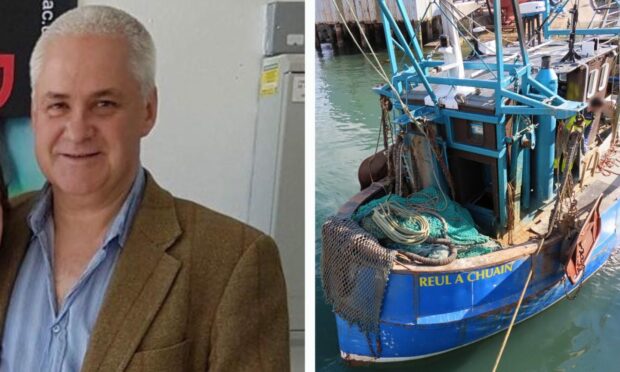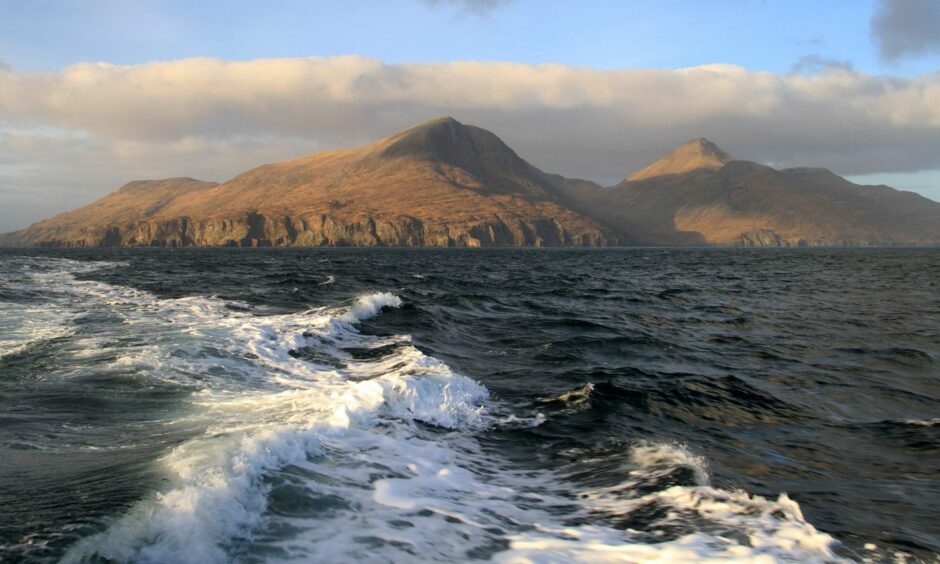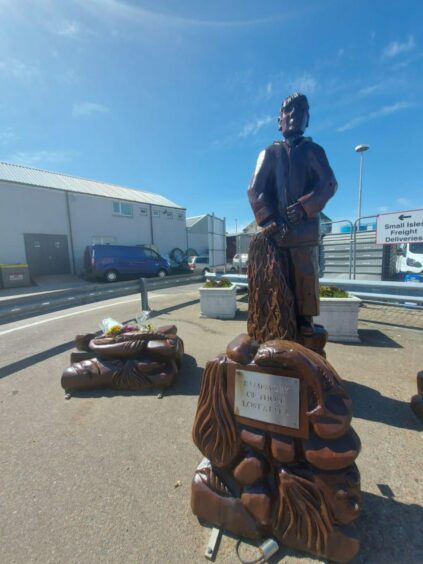A skipper who died while trying to rescue his deckhand was not wearing a personal flotation device that may have saved his life, investigators have said.
Lachlan Robertson, from Mallaig, died after he and a fellow crew member fell into the sea in the Sound of Rum in the Inner Hebrides.
The tragedy unfolded when a deckhand fell overboard from the Reul A Chuain in bad weather on June 24 last year.
He had been trying to recover the vessel’s net, which had slipped over the stern during heavy rolling.
Mr Robertson, known as Lachie, “instinctively” reached out to try and get him, but also fell overboard when the vessel rolled again heavily.
Although both men were dragged from the water, 61-year-old Mr Robertson could not be saved. The other man, a 34-year-old Romanian, suffered minor injuries but did not require hospital treatment.
Following the well-known piper’s death, he was described as a “gem” of the community and a “true gentleman”.
The Marine Accident Investigation Branch launched an investigation, and has published its findings – noting neither man was wearing a personal floatation device (PFD).
Investigators also said that the net should have been pulled aboard after fishing, as per the control measures in the trawler’s risk assessment, as it would then not have slipped in bad weather – preventing the “emergency situation that continued to escalate with dire consequences”.
Crewmen desperately tried to save skipper
“Lachlan Robertson died from the effects of immersion in water. His chances of survival would have been improved had he worn his PFD,” the MAIB report states.
Describing the incident, investigators said the third man onboard – a 21-year-old junior deckhand – tried desperately to get his skipper to safety, using the lifebuoy line.
They wrote: “The skipper tried to reboard the vessel by climbing onto one of the tyre fenders hanging over the side. As he climbed, the lifebuoy fell to his knees. The junior deckhand tried to help him but Reul A Chuain rolled heavily to port and the skipper lost his grip and fell backwards into the water.
“The lifebuoy lifted the skipper’s knees up and forced his upper body and head under the water.
“The senior deckhand swam to the skipper and brought him back to the stern. He then pulled the skipper upright in the water and kept him afloat while shouting instructions to the other deckhand.”
The junior deckhand then lowered ropes into the water and set the winch ready to heave on the ropes, which the other crewman in the water wrapped around Mr Robertson.
“The junior deckhand operated the winch, lifted the skipper out of the water, clear of the bulwark, and lowered him onto the aft deck,” the report states. “He untied the skipper and repeated the process to lift the senior deckhand on board.
“Reul A Chuain’s senior deckhand, exhausted and debilitated from the cold, went into the accommodation to change into dry clothes.”
Meanwhile the junior deckhand began CPR on Mr Robertson, while also updating the coastguard on the situation.
Skipper’s actions ‘instinctive’
Mr Robertson – who was in the water for about 20 minutes – was wearing a T-shirt, sweatshirt, fleece, jeans, oilskin trousers and sea boots when he fell overboard.
The water temperature was likely to be around 12C.
The report adds: “Sudden immersion in water temperatures of less than 15C can result in cold water shock and/or cold incapacitation.
“Reul A Chuain’s skipper died from immersion in water after falling overboard while attempting to rescue the senior deckhand. He was not wearing a restraint arrangement, which would have prevented his fall overboard, nor a PFD, which would have increased his chance of survival once in the water.
“While the skipper and senior deckhand had extensive fishing experience at sea, the sequence of events that led to the falls overboard and subsequent rescue attempts resulted from poor work practices, infrequent emergency drills, and consequently a lack of familiarity with rescue techniques and equipment.
“Having seen the senior deckhand fall overboard, the skipper’s action to reach down to help him in the water below was probably instinctive and without thought for his own safety or the consequences.
Cold water shock
The MAIB added: “It is likely that the skipper’s initial fall into the water, the effect of the waves and the induced stress and confusion, combined with his later incapacitation due to the lifebuoy around his knees, caused him to inhale water.
“After his initial fall overboard, the skipper would have expended a significant amount of energy trying to remain afloat. Additionally, the cold water would have limited his capacity to operate within minutes of immersion, and cold water shock and hypothermic effects would have caused stress in his system.”
In view of the safety flyer and other guidance currently available to the fishing industry, no safety recommendations have been made by the MAIB.



Conversation